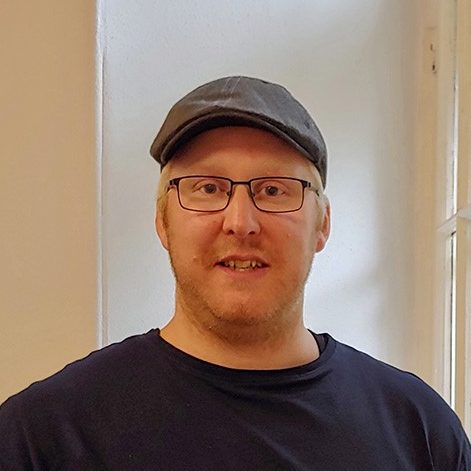Dustin Barker
Bachelor of Arts 21
Honours in Classics (Languages and Literature)
Looking to ancient Greece to understand contemporary questions
A career change led Dustin Barker to embark on a Classics degree
Combining the study of ancient languages with philosophical inquiry inspired this student to continue his research at the graduate level.
How did you find yourself pursuing ancient languages and literature?
I was a pastor for about 10 years and I initially enrolled to learn about ancient Greek culture, and the cultural aspects of the Hellenistic period and the Roman Empire period. These were topics that were historically and culturally pertinent to my work.
I was looking into taking a new direction in life and alternative career options when I realized that I really enjoyed studying classics and working with early ideas, stories and ancient languages.
Now that my goal is to pursue graduate studies in classics, I decided an honours degree would stand out.
What skills have you gained?
Research, examining sources, and evaluating them from a critical perspective. Working with language and learning how to navigate some of the ambiguities that language creates. You start to grasp the challenges of interpreting a text and integrating different sources. All these skills are important for graduate-level studies.

What about your learning experiences beyond the classroom?
I had the opportunity to do two research projects. The first examined the idea of fate and free will in early Greek literature. The second project looked at specific Aeolic dialect forms in Homer’s epic poetry.
Describe the program in three key terms . . .
Challenging: Putting yourself in a culture and historical context more than 3,000 years old is not easy, since it’s a perspective that’s so far removed from your own. Learning languages not currently spoken is inherently challenging thing. It takes work and effort to do well.
Enriching: I enjoyed being able to study and analyze through the lens of different worldviews. One area I found particularly interesting is how the Greeks dealt with issues that we still deal with today: suffering, fate versus free will, how people navigate those aspects of trying to be responsible when there are major aspects of our lives we can’t control.
Inspiring: Here I’m referring mostly to interactions with professors. Their expertise, their passion for the material, their engagement with it and their students is inspiring.



